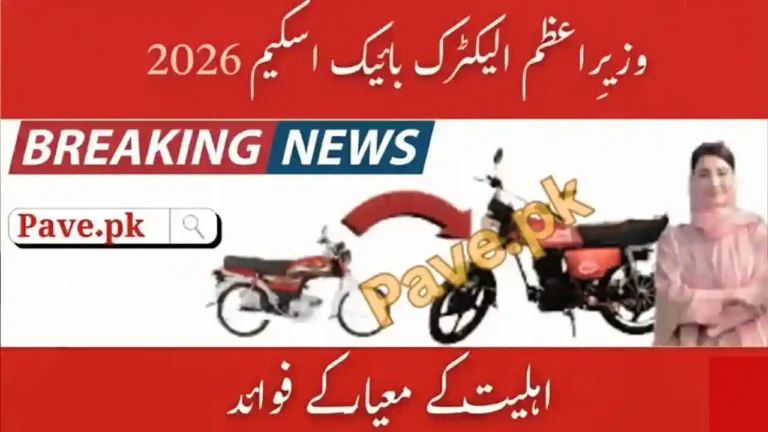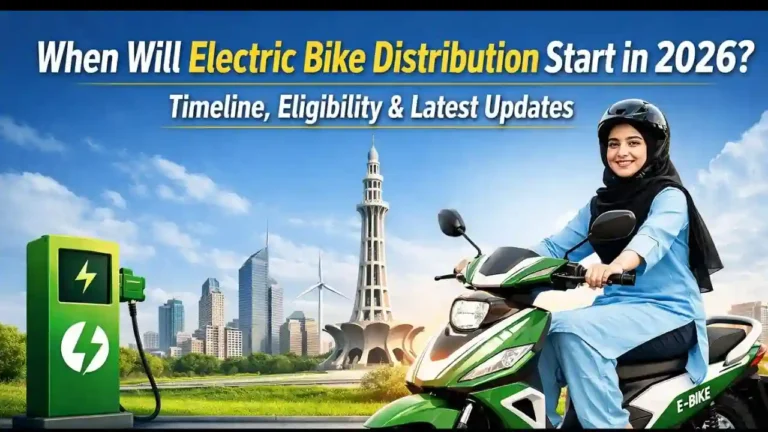Maryam Nawaz Brings 101 Eco-Friendly E Buses in Punjab 2025 | A Green Revolution in Transport

Maryam Nawaz, the Chief Minister of Punjab, has officially launched 101 Eco-Friendly E Buses in Punjab 2025, marking a historic shift in the region’s urban transport system. This green initiative is part of the Punjab government’s broader plan to modernize public transport, reduce carbon emissions, and promote clean mobility. The introduction of these e-buses is not just a transport upgrade—it is the beginning of a green revolution in Punjab’s public transportation sector.
As Pakistan continues to face rising fuel costs, worsening air pollution, and traffic congestion, this move positions Punjab as a pioneer in sustainable development. The launch of 101 electric buses represents a commitment to affordability, comfort, and environmental responsibility.
Why Electric Buses Are a Game-Changer for Punjab
Electric buses (E-Buses) represent more than just cleaner transport. For Punjab, they carry strategic importance in five key areas:
- Energy Security – Reduces dependency on imported fuel.
- Environmental Protection – Helps fight smog and climate change.
- Public Health – Cuts air pollution-related diseases such as asthma.
- Economic Relief – Lowers transport costs for millions of commuters.
- Urban Modernization – Places Punjab in the league of smart, eco-friendly cities.
Punjab’s transport sector currently consumes over 35% of Pakistan’s imported fuel. By switching to electric mobility, billions of rupees can be saved annually.
Check Also: Eco-Friendly Bus Launch in DG Khan by CM Maryam Nawaz
Maryam Nawaz’s Vision for Green Mobility
Maryam Nawaz’s governance model focuses on climate-smart governance. In her words, “Punjab will lead Pakistan’s journey towards a clean and green future.”
Her broader vision includes:
- 5-Year Expansion Plan: Add 500+ electric buses by 2030.
- Solar-Powered Charging Stations: Reduce reliance on fossil fuels.
- Digital Ticketing System: QR-based smart cards for cashless travel.
- Gender-Safe Transport: Women-only seats and CCTV monitoring.
- Disability-Friendly Services: Ramps, low-floor entry, and priority seating.
This makes Punjab the first province in Pakistan to actively plan for a fully integrated, smart, and sustainable bus network.
Check Also: CM Punjab Launches Wazirabad Electric Bus Service
Technical Features of Punjab’s 101 Electric Buses
These buses are not just eco-friendly—they’re modern mobility machines equipped with international-level features:
| Feature | Details |
|---|---|
| Battery Capacity | 350 – 400 kWh lithium-ion |
| Charging Time | 2.5 – 3 hours (fast charging) |
| Range per Charge | 220 – 250 km |
| Top Speed | 90 km/h |
| Passenger Capacity | 70 – 90 passengers |
| Safety | CCTV, GPS tracking, fire suppression systems |
| Accessibility | Low-floor design, ramps for wheelchairs |
| Comfort | Air-conditioned, Wi-Fi, ergonomic seats |
Each bus is capable of saving up to 60 tons of CO₂ annually, making the entire fleet of 101 buses equivalent to planting 1.5 million trees every year.
Benefits of Electric Buses in Punjab
1. Environmental Benefits
- Each diesel bus replaced by an e-bus reduces pollution by 80%.
- Helps in tackling Lahore’s smog problem which has become a health emergency.
- Contributes to Pakistan’s target of 30% EV adoption by 2030 (as per EV Policy 2020).
2. Economic Benefits
- Reduces annual fuel import bills by billions of rupees.
- Operating costs are 40% cheaper than diesel buses.
- Local jobs created in bus assembly, charging infrastructure, and maintenance.
3. Social Benefits
- Safer and more reliable rides for students, women, and elderly.
- Encourages eco-awareness among the younger generation.
- Cuts daily commute costs, especially for low-income groups.
Check Also: Honda Shine Electric Bike 2025
Cities Benefiting in the First Phase
The first 101 buses have been strategically distributed:
- Lahore – 40 buses
- Multan – 25 buses
- Faisalabad – 20 buses
- Bahawalpur – 16 buses
This ensures balanced coverage across both central and southern Punjab, reducing the transport gap between major and smaller cities.
Punjab Government’s Long-Term Clean Transport Plan
The e-bus launch is only the beginning. The Punjab government has a 10-year roadmap that includes:
- Expansion to 10 Major Cities – Including Rawalpindi, Gujranwala, and Sialkot.
- Local EV Production Units – In partnership with global EV companies like BYD (China) and Hyundai (South Korea).
- Green Charging Infrastructure – Solar-powered stations to be set up across highways and city centers.
- Integration with Metro Bus & Orange Line – Unified smart transport card for seamless commuting.
Global Comparisons – Punjab in the League of Green Cities
Globally, countries are rapidly adopting e-buses:
- China – Over 400,000 e-buses in operation.
- India – Targeting 50,000 e-buses by 2030.
- UK – London already operates 1,000+ e-buses.
Punjab’s step, though smaller in numbers, places it in the league of progressive regions, setting an example for Sindh, KPK, and Balochistan.
Check Also: Intermediate Board Toppers to Get Free Electric Bikes 2025
Challenges and Solutions
Every revolution faces obstacles. Punjab’s e-bus plan must overcome:
- High Initial Costs – Each bus costs nearly PKR 50–60 million.
- Charging Infrastructure Gaps – Limited stations in rural areas.
- Maintenance Expertise – Lack of skilled EV technicians.
Solutions introduced by government:
- Public-private partnerships for charging depots.
- Training programs for EV engineers and drivers.
- Subsidy schemes to reduce project cost.
Public Reaction and Commuter Feedback
Initial surveys conducted by Punjab Transport Authority show:
- 87% of commuters welcome the move towards e-buses.
- 72% believe fares must remain affordable for mass adoption.
- 90% of women respondents rated safety features positively.
This indicates strong public acceptance, crucial for long-term success.
FAQs About Punjab’s Electric Bus Project:
Q1: When will the e-buses start operating?
The buses are set to begin operations in late 2025.
Q2: Will fares be higher than normal buses?
No, the government plans to keep fares affordable.
Q3: Which cities will get buses first?
Lahore, Multan, Faisalabad, and Bahawalpur.
Q4: How will these buses be charged?
Through fast-charging solar and electric stations.
Q5: Are these buses safe for women and students?
Yes, buses are equipped with CCTV, GPS, and women-friendly seating.
Q6: Will more buses be added later?
Yes, the government aims to expand the fleet every year.
Q7: How much pollution will be reduced?
Each bus can cut tons of CO₂ emissions annually.
Q8: Will jobs be created?
Yes, in areas of maintenance, driving, and EV production.
Q9: Is this project linked to global climate goals?
Yes, it aligns with Pakistan’s climate commitments.
Q10: How will this help ordinary citizens?
By saving travel costs, reducing smog, and ensuring cleaner transport.
Conclusion – Maryam Nawaz Brings 101 Eco-Friendly E Buses in Punjab 2025
The launch of 101 eco-friendly e-buses in Punjab by Maryam Nawaz in 2025 is more than just a transportation project—it is a green revolution for Pakistan. This bold step will ease daily commuting, cut pollution, and modernize the province’s public transport infrastructure.
With each electric bus on the road, Punjab takes one step closer to a sustainable, affordable, and cleaner future. If executed successfully, this project could transform not only Punjab but also inspire eco-friendly reforms nationwide.






